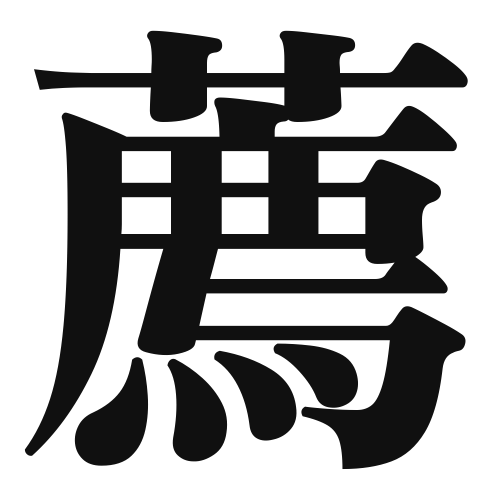1. Overview of Meaning
The kanji 薦 (sen) means “to recommend” or “to suggest.” It is often used in contexts where one person is advising another to consider something positively.
2. Formation and Radical
Formation of the Kanji: The kanji 薦 is a compound character (会意文字) that combines elements to convey its meaning. It consists of the radical for “grass” (艹) at the top, indicating a connection to nature, and the character 言 (to speak) at the bottom, suggesting communication or advice.
Radical: The radical of 薦 is 艹, which relates to plants or grass, often indicating something that is natural or organic.
3. Examples of Usage
Common Words and Phrases: Some frequently used words that include 薦 are:
- 推薦 (suisen) – recommendation
- 薦める (susumeru) – to recommend
Example Sentences in Daily Conversation:
- この本を薦めます。 (I recommend this book.)
- 彼は新しいレストランを薦めてくれました。 (He recommended a new restaurant to me.)
4. Synonyms and Antonyms
Similar Kanji: A kanji with a similar meaning is 推奨 (suishou), which also means “recommendation,” but it often carries a more formal or official connotation.
Opposite Kanji: An antonym is 拒否 (kyohi), which means “to refuse” or “to reject,” indicating the opposite action of recommending something.
5. Cultural and Historical Background
Connection to Japanese Culture: The concept of recommendation is significant in Japanese culture, where personal endorsements can greatly influence decisions, such as in dining or shopping.
Proverbs and Idioms: One relevant saying is 「人の口に戸は立てられぬ」 (Hito no kuchi ni to wa taterarenu), which translates to “You cannot close people’s mouths,” emphasizing the importance of word-of-mouth recommendations in society.
